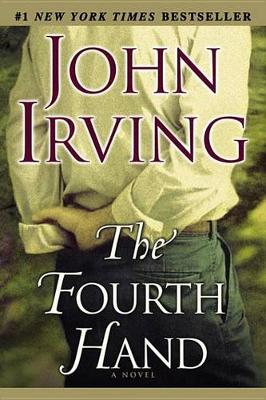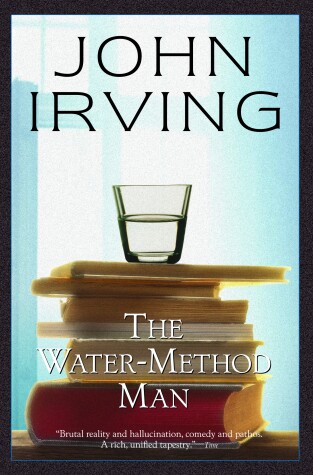Ballantine Reader's Circle
3 total works
'The brown bears paced, brushing their thick coats against the bars; their heads swayed low to the ground, in rhythm with some ritual of stealth they were born knowing and pointlessly never forgot'
It is 1967 and two Viennese university students decide to liberate the Vienna Zoo, as was done after World War II. The eccentric duo, Graff and Siggy, embark on an adventure-filled motorbike tour of Austria as they prepare for "the great zoo bust." But their grand scheme will have both comic and gruesome consequences, as they are soon to find out...
“Imagine a young man on his way to a less-than-thirty second event — the loss of his left hand, long before he reached middle age.”
The Fourth Hand asks an interesting question: “How can anyone identify a dream of the future?” The answer: “Destiny is not imaginable, except in dreams or to those in love.”
While reporting a story from India, a New York television journalist has his left hand eaten by a lion; millions of TV viewers witness the accident. In Boston, a renowned hand surgeon awaits the opportunity to perform the nation’s first hand transplant; meanwhile, in the distracting aftermath of an acrimonious divorce, the surgeon is seduced by his housekeeper. A married woman in Wisconsin wants to give the one-handed reporter her husband’s left hand—that is, after her husband dies. But the husband is alive, relatively young, and healthy.
This is how John Irving’s tenth novel begins; it seems, at first, to be a comedy, perhaps a satire, almost certainly a sexual farce. Yet, in the end, The Fourth Hand is as realistic and emotionally moving as any of Mr. Irving’s previous novels—including The World According to Garp, A Prayer for Owen Meany, and A Widow for One Year—or his Oscar-winning screenplay of The Cider House Rules.
The Fourth Hand is characteristic of John Irving’s seamless storytelling and further explores some of the author’s recurring themes—loss, grief, love as redemption. But this novel also breaks new ground; it offers a penetrating look at the power of second chances and the will to change.
Fred "Bogus" Trumper has troubles. A divorced, broke graduate student of Old Norse in 1970s New York, Trumper is a wayward knight-errant in the battle of the sexes and the pursuit of happiness: His ex-wife has moved in with his childhood best friend, his life is the subject of a tell-all movie, and his chronic urinary tract infection requires surgery.
Trumper is determined to change. There's only one problem: it seems the harder he tries to alter his adolescent ways, the more he is drawn to repeating the mistakes of the past. . . .
Written when Irving was twenty-nine, Trumper's tale of woe is told with all the wit and humor that would become Irving's trademark.
“Three or four times as funny as most novels.”—The New Yorker
Praise for The Water-Method Man
“Friendship, marriage, and family are his primary themes, but at that blundering level of life where mishap and folly—something close to joyful malice—perpetually intrude and distrupt, often fatally. Life, in [John] Irving's fiction, is always under siege. Harm and disarray are daily fare, as if the course of love could not run true. . . . Irving's multiple manner . . . his will to come at the world from different directions, is one of the outstandint traits of The World According to Garp, but this remarkable flair for . . . stories inside stories . . . isalready handled with mastery . . . and with a freedom almost wanton in The Water-Method Man [which is Garp's predecessor by six years].”—Terrence Des Pres
“Brutal reality and hallucination, comedy and pathos. A rich, unified tapestry.”—Time


